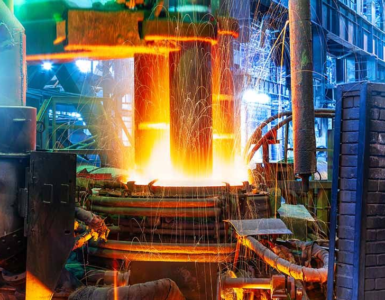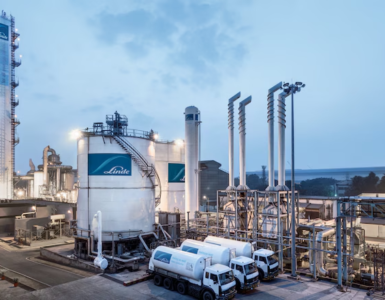BHP extends low carbon steel research partnership with University of Newcastle, program includes hydrogen
BHP will extend its partnership with the Centre for Ironmaking Materials Research (CIMR) at the University of Newcastle with a further A$10 million in funding to support ongoing research into decarbonising steelmaking.
The expanded research program will focus on low carbon iron and steelmaking using BHP’s iron ore and metallurgical coal, including conventional blast furnace ironmaking with the addition of hydrogen, and emerging alternative low carbon ironmaking technologies.
The collaboration, with funding from BHP’s US$400 million Climate Investment Program, will last five years and help train the next generation of PhD researchers and engineers.
🔥 What about we co-host a webinar? Let's educate, captivate, and convert the hydrogen economy!
Hydrogen Central is the global go-to online magazine for the hydrogen economy, we can help you host impactful webinars that become a global reference on your topic and are an evergreen source of leads. Click here to request more details
BHP has a long history with the city of Newcastle, and with the University of Newcastle dating back to commencement of collaborative iron and steel research in 1957. The establishment of the Newcastle Institute for Energy and Resources (NIER) in 2010 was another major step in BHP’s support for the local community and for steelmaking research.
The CIMR was one of the first Centres created at NIER, opening in 2010 to undertake ironmaking research supporting the use of BHP’s iron ore and metallurgical coal in the conventional steelmaking process.
A number of the current BHP Marketing team started their careers with the Newcastle Technology Centre, including Dr Rod Dukino, BHP VP Sales & Marketing Iron Ore, who said the type of research undertaken by NIER was vital to global efforts to reduce greenhouse gas emissions.
Dr Dukino said:
Greenhouse gas emissions from steelmaking represent around 7-10 per cent of global total estimated emissions and the industry remains one of the most difficult sectors in the world to abate.
“Research and innovation have a critical role to play in accelerating the industry’s transition to a low carbon future.
“The expanded research program with the University of Newcastle complements BHP’s existing partnerships with our key steelmaking customers in China, Japan and South Korea. We are pursuing the long-term goal of net zero Scope 3 greenhouse gas emissions by 20501. Recognising the particular challenge of a net zero pathway for this hard-to-abate sector, we are continuing to partner with customers and others in the steel value chain to seek to accelerate the transition to carbon neutral steelmaking.”
In welcoming the funding, University of Newcastle Vice-Chancellor, Professor Alex Zelinsky, said the ongoing work of NIER would help drive the type of home-grown innovation needed for the world to decarbonise.
“Through our strategic plan, which was shaped by our students, staff and our communities, we are committed to supporting the innovation required to bring the world closer to a sustainable future with solutions for the use of natural resources and the development of new energy technologies,” Prof. Zelinsky said.
“This continued partnership with BHP is a clear example of the University’s commitment to driving technological advancement through industry-engaged research, and we are honoured to continue with BHP’s legacy of innovation at our dedicated NIER precinct.”
1 Described in full in BHP’s Climate Transition Action Plan 2021, page 8, available at bhp.com/climate.
READ the latest news shaping the hydrogen market at Hydrogen Central
BHP extends low carbon steel research partnership with the University of Newcastle, source








